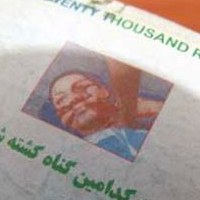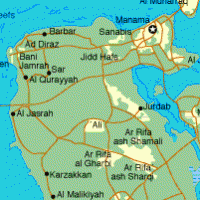![]()
A DebkaFile report: “Assad contains Syrian uprising for now, with credits for Russia and Iran”.
Ten months after the Syrian people launched an uprising against its ruler, Bashar Assad, if not yet safe in the saddle, has recovered the bulk of his army’s support and his grip on most parts of the country.
Protesters have mostly been pushed into tight corners in the flashpoint towns and villages, especially in the north, hemmed in by troops and security forces loyal to the president.
Monday, Jan. 30, Syrian forces were close to purging the suburbs and villages around Damascus of rebel fighters. The operation began Sunday with 2,000 troops backed by tanks and armored personnel carriers. Six soldiers were killed when their vehicle blew up on a roadside bomb near Sahnaya, east of the capital.
The rebel Free Syrian Army and opposition groups continue to report heavy fighting in the Damascus area, and especially the international airport where they claim to have prevented Assad’s wife and children from fleeing the country. However, military watchers do not confirm either the fighting or the Assad family’s attempted flight.
While both sides spin propaganda, the extreme hyperbole of opposition claims attests to their hard straits and the Syrian president’s success in weathering their efforts and the huge sacrifices in blood paid by the people (estimated at 8,000 dead and tens of thousands injured) to oust him.
Having got rid of the Arab League monitoring mission, which gave up in despair of halting the savage bloodbath, Assad will shrug off the Arab-Western backed motion put before the UN Security Council Tuesday, Jan. 30, calling on him to step down and hand power to his vice president Farouk a-Shara. He will treat it as yet another failed effort by the combined Arab-Western effort to topple his regime.
The conflict is not over. More ups and downs may still be to come and there are signs of sectarian war evolving. But for now, Assad’s survival is of crucial relevance in seven Middle East arenas:
1. The Tehran-Damascus-Hizballah bloc is strengthened, joined most recently by Iraq;
2. Iran chalks up a first-class strategic achievement for counteracting the US and the Saudi-led Gulf Arab emirates’ presentation of the Islamic regime as seriously weighed down under by the crushing burden of crushing international sanctions imposed to halt its drive for a nuclear bomb.
3. Hizballah has won a chance to recover from the steep slide of its fortunes in Lebanon. The Pro-Iranian Lebanese Shiite group stands to regain the self-assurance which ebbed during Assad’s hard times against massive dissidence, re-consolidate its bonds with Tehran, Damascus and Baghdad and rebuild its political clout in Beirut.
4. It is hard to calculate the enormous extent of the damage Saudi Arabia and Turkey have suffered from their colossal failure in Syria. The Palestinians too have not emerged unscathed.
Saudi Arabia, Qatar and their security agencies, which invested huge sums in the Syrian rebellion’s removal of the Assad regime, were trounced by Syria’s security and intelligence services and the resources Iran provided to keep Bashar Assad afloat.
The Arab League, which for the first time tried its hand at intervening in an Arab uprising by sending observers into Syrian trouble spots to cut down the violence, watched impotently as those observers ran for their lives. Assad for his part first accepted than ignored the League’s peace plan.
Turkey, too, after indicating its military would step across the border to support the Syrian resistance and giving the FSA bases of operation, backed off for the sake of staying on good terms with Iran.
5. Russia and China have gained credibility in the Middle East and points against the United States by standing up for Assad and pledging their veto votes against any strong UN Security Council motions against him. Moscow’s arms sales and naval support for the Assad regime and China’s new military and economic accords with Persian Gulf emirates have had the effect of pushing the United States from center stage of the Arab Revolt, held in the Egyptian and Libyan revolutions, to the sidelines of Middle East action.
6. The Syrian ruler has confounded predictions by Israel’s Defense Minister Ehud Barak that he can’t last more than a few weeks. His survival and the cohesion of his armed forces have contributed to the tightening of the Iranian military noose around Israel.
The Syrian army was in sustained operation for almost a year without breaking and suffered only marginal defections. It is still in working shape with valuable experience under its belt in rapid deployment between battlefronts. Syria, Iran and Hizballah have streamlined the cooperation among their armies and their intelligence arms.
7. The Palestinian rivals, Fatah and Hamas, have again put the brakes on the on-again, off-again reconciliation after it was galvanized by Hamas’ decision to create some distance between Iran and the embattled Syrian regime. Seeing Assad still in place, Hamas’ Gaza prime minister Ismail Haniyeh will visit Tehran this week and Meshaal may delay his departure from the Syrian capital.



 RSS
RSS















Assad contains Syrian uprising for now, with help of Russia, Iran and Hizballah http://t.co/nxrTlXwv
Assad contains Syrian uprising for now, with help of Russia, Iran and Hizballah http://t.co/nxrTlXwv